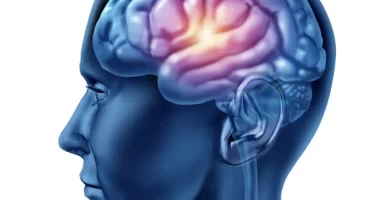What Causes Heart Failure?
According to Dr. Suresh Rao KG, Co-Director, Institute of Heart and Lung Transplant & Mechanical Circulatory Support, MGM Hospital – The heart is one of the most vital organs and it is important to make sure that it is healthy and functions well. Heart failure, one of the most common ailments of the heart refers to the condition in which the heart is unable to perform the function of pumping blood in a proper manner. As a result of this, the blood stagnates in the heart and builds back pressure into the lungs which result in shortness of breath. It is a progressive condition and gets worse over a period of time if left unattended. According to the New York Heart Association Classification (NYHA Class 1-4), heart failure can broadly be classified into 4 stages. The first and second stages are considered to be the pre-heart failure phase, whereas the third stage refers to heart failure patients who had or currently have symptoms of the disease. The fourth stage refers to patients with advanced symptoms of heart failure. While heart failure has no permanent cure, there is a possibility of managing it through lifestyle changes, therapy, and medical procedures such as LVAD implantation and heart transplant. TheHealthSite.com spoke to Dr. Suresh Rao KG, Co-Director, Institute of Heart and Lung Transplant & Mechanical Circulatory Support, MGM Hospital to discuss the topic. Here’s what the doctor wants you to know.
Causes of Heart Failure

Heart failure is caused by a combination of several risk factors that differ from person to person. Following are some of the common causes:
- Age– The risk of the heart increases with age and people above the age of 65 are at a higher risk of heart failure.
- Genetic– A prolonged family history or prior experience of heart failure increases the risk of reappearance.
- Lifestyle habits– Physical inactivity and sedentary lifestyle including food habits and use of toxic drugs can increase the risk.
- Gender– It has been seen that men are at a higher risk of heart failure in comparison to women.
- Diabetes– It increases the risk of coronary heart disease.
- Obesity– People who are overweight are at a higher risk.
- Hypertension– It generally happens due to lack of sleep and higher stress levels and increases risk.
- High blood pressure causes extra exertion on heart muscles, making it too stiff or weak to pump blood properly.
- Arrhythmias– Abnormal heart rhythms can put pressure on the heart and result in heart failure.
- Congenital heart defect– It occurs when chambers or valves are formed incorrectly during birth.
- Coronary artery disease– The arteries become clogged with cholesterol and other deposits, reducing blood flow to the heart.
- Damage to the heart muscle– It can occur genetically or through certain diseases, infection, heavy use of alcohol or drugs.
- Faulty heart valves– It appears due to a heart defect or infection and even due to coronary artery disease.
- Damage to the heart muscle– It can occur genetically or through certain diseases, infection, chemotherapy, and heavy use of alcohol or drugs.
- Heart attack– It can leave scar tissue in the heart, resulting in abnormalities in the heart rhythm. It can trigger ventricular fibrillation and sudden cardiac arrest.
Damages Due To Heart Failure
Since heart failure is a progressive condition that worsens over time, it is important to understand that if not managed properly, it can lead to long-term damage to other organs of the body. Some of these include:
- Kidney damage or failure– Heart failure can have a direct impact on the kidneys and reduce the blood flow to the kidneys. This can eventually cause kidney failure if left unattended. In the worst case, the patient may also require dialysis for treatment
- Liver damage– Heart failure can cause liver congestion which may make it difficult to function properly. If not taken care of, it may lead to scarring of the liver or liver cirrhosis.
- Lungs high pressure in the heart can cause congestion of the lungs and work of breathing may increase.
- Fluid accumulation over the lower limbs and the abdomen.
Our lifestyle choices and eating habits have a direct impact on managing heart failure. Therefore, it is suggested to engage in some form of physical activity daily. Apart from that, it is equally important to follow a healthy diet. In the case there are persisting symptoms, patients are advised to consult a doctor at the earliest to seek accurate treatment to prevent any long-term impact on their health and live a life beyond heart failure.
ALSO READ:
This post first appeared on The Health Site








